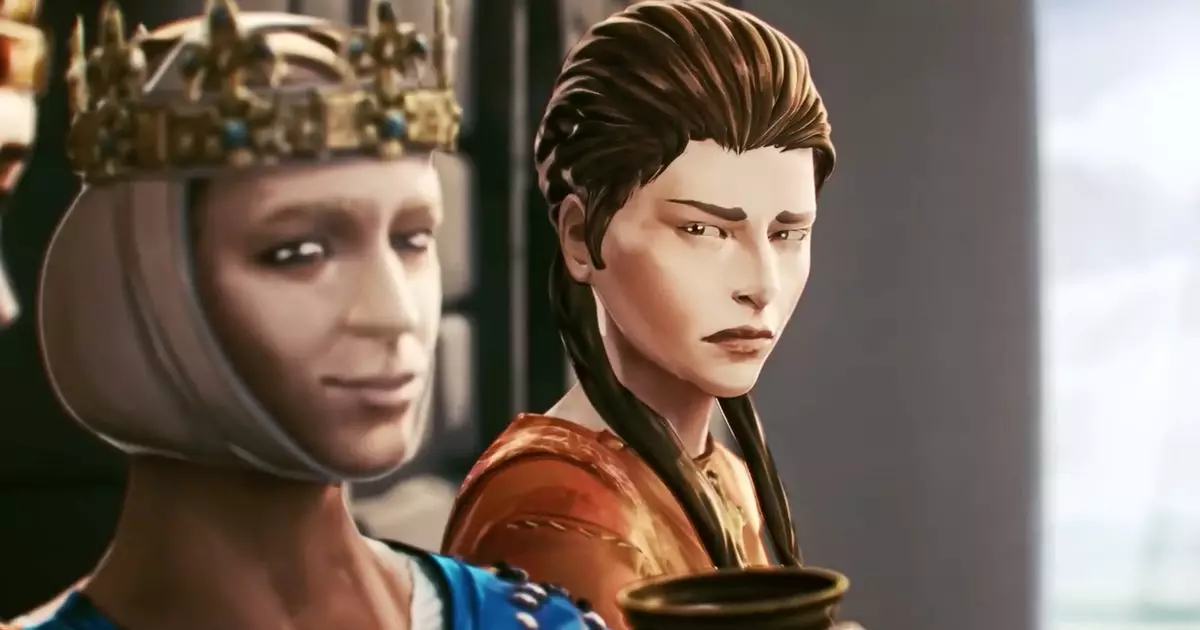The recently launched player survey by Paradox for Crusader Kings 3 announces a bold step toward enhancing the gaming experience, bringing the medieval realm closer to home for its players. By directly engaging the community through feedback, Paradox not only acknowledges its user base but also signals an intent to evolve the game’s trajectory based on the collective preferences and play styles of its fanbase. This strategy appears to be a bid for deeper community connection, emphasizing that every player’s voice, no matter how small, can influence the destiny of a grand strategy game.
Curiously, the survey poses questions centered around different archetypes of gameplay, asking players to classify their gaming motivations into categories such as roleplaying or engaging in systemic challenges. The fact that Paradox is keen on identifying these categories indicates a nuanced understanding of player psychology and the diverging interests within its audience. It’s fascinating to see how these motivations can shape the design of the game and dictate whether the next expansion will veer towards enhancing role-playing elements or deepening strategic mechanics.
Dichotomy of Gameplay: Roleplaying vs. Systemic Challenges
One of the standout features of games like Crusader Kings 3 is their inherent ability to weave narratives through systemic gameplay. This dual nature manifests in players’ preferences—some are drawn to the intricacies of character development and storytelling, while others thrive on optimizing military power and economic prowess. The survey highlights this dichotomy, as the questions prompt players to reflect on whether they engage primarily for narrative satisfaction or competition-driven mechanics.
This distinction is vital for the ongoing development of the game. It raises important questions about what kinds of updates or expansions can create the most enriching experiences. For example, should future content focus more on lore-rich narratives that allow players to explore immersive stories or should it prioritize the crafting of balanced economic systems capable of sustaining intricate empires? The engagement of players with these questions reveals the diverse landscape of desires within the community. Those who prefer the role of a meticulous strategist can find joy in financial conquests, while others may revel in creating a flavor-rich narrative archetype.
Hints of Future Themes: Trade, Mercantilism, and Beyond
The exploration of themes in the survey—spanning trade, merchantile dynamics, and feudal politics—provides a glimpse into the potential directions Paradox might explore next. Interestingly, the selection of thematic elements such as “naval trade,” “merchant republics,” and “banking” suggests an awareness of historical contexts that can enhance gameplay without sacrificing realism. The focus on these elements underscores a key aspect of grand strategy games: players are not just historians; they are architects of alternate histories.
Moreover, topics like “feudalism & crusades” and “religion” resonate deeply within the core identity of Crusader Kings. They hint at the developers’ intent to further embroider gameplay with soul, crafting systems that reflect both the complexity and richness of the historical elements at play. This approach could potentially transform how players interact with various features of the game, providing a more profound understanding of historical interactions and socio-political dynamics.
The Emergent Narrative: A Player-Driven Fabric
The notion of emergent storytelling, suggested by the survey’s inquiries, invites speculation about how this instinct can be nurtured further. Players already navigate vast landscapes of intrigue and victory; capturing the nuances of every decision, character interaction, and battle outcome adds layers to their experiences. As Brendy’s anecdote illustrates, unexpected outcomes can lead to unforeseen developments that echo throughout the gameplay. The aim should not merely be to respond to player preferences but to cultivate an environment fertile for spontaneous narratives that evolve beyond scripted outcomes.
Ultimately, by actively soliciting player input, Paradox is not only aiming to improve its existing framework but also engaged in an artful dance with its community, echoing a symbiotic relationship that can lead to satisfying expansions. This method could well become a hallmark of how games evolve in an age where user feedback and involvement dictate success. It sets the stage for a transformative experience that embraces the complexities of both historical realism and the engaging fantasies that players create within this grand sandbox of empire-building.


Leave a Reply